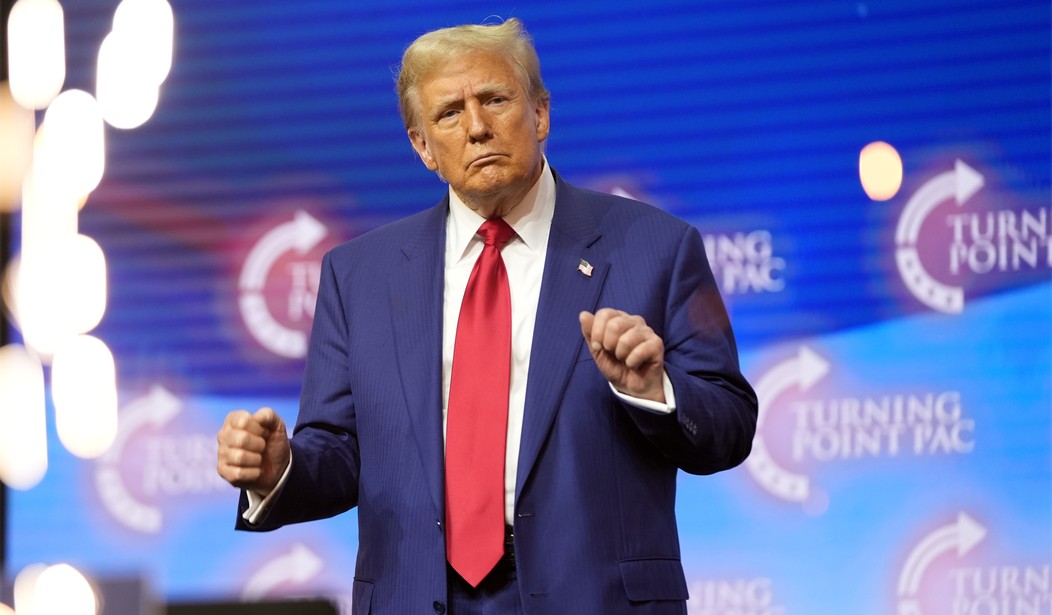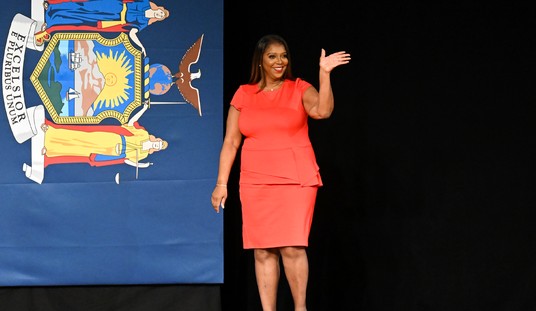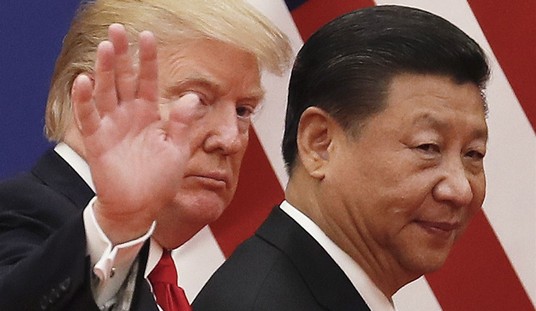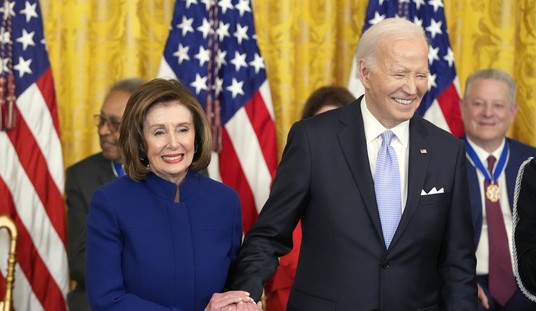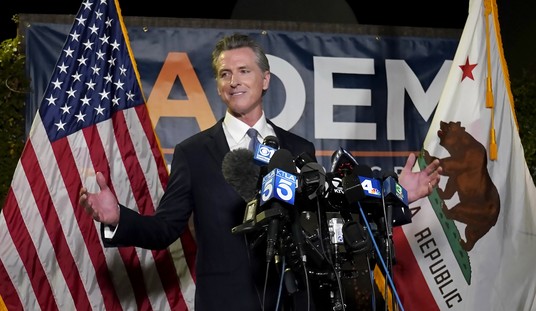Donald Trump wants to eliminate the income tax and replace it with new and increased tariffs on imported goods — and I'm finally able to hear the sound of one hand clapping.
Trump is spot-on when he says the income tax has got to go. The tax code — now up to more than 70,000 pages — is both corrupt and corrupting. Even a typical American trying to figure out the answer to the question, "How much tax do I owe on this dollar?" is best served by a specialized tax accountant.
Just complying with the tax code is an expensive and time-consuming process. While a single, correct, hard figure is impossible to come by, compliance requires somewhere between 6.5 and 7.9 billion-with-a-b man-hours each year. Split the difference, and that's the equivalent of about 3.6 million full-time jobs. Those 70,000 pages incur annual productivity losses worth up to $413 billion, and all those tax accountants and services cost more than $500 billion.
It costs almost ONE TRILLION DOLLARS to collect $2.18 trillion in federal income taxes.
That's insane. It's also inevitable.
One odd couple — Republican President Ronald Reagan and Democrat House Speaker Tip O'Neil — did their best to pare down the tax code with the 1986 Tax Reform Act. The TRA eliminated loopholes, shelters, and deductions and raised the standard deduction so that millions of people would no longer have to go through the lengthy and expensive process of itemizing.
Despite all that, by 1988 the tax code was up to 26,000 pages. It has done nothing since but grow.
The TRA generated plenty of revenue while reducing compliance burdens. But politicians — and party affiliation makes no difference here — can't help mucking up a good thing. And to be fair, politicians are only responding to public pressure from various groups who want their pet causes and special interests enshrined in the tax code.
We could elect nothing but angels to enact a perfect, fair, and simple tax code and by the very next election, there would be public pressure to make it worse — and even those angels would feel compelled to respond. Nobody ever looked at the huge pile of money Washington collects each year without feeling entitled to a greater share of it.
As you can see, the only way to fix the income tax is to abolish it — and good on Donald Trump for being the only big-name, big-ticket politician with the cojones to say it.
It's Trump's plan to replace the income tax with new and increased tariffs where things fall apart. That isn't because of special interest groups that would lose their tax goodies, although Lord knows they'd squeal like stuck pigs every step of the way to abolishing the income tax. It isn't because of big business groups that would object most strenuously (and with massive K Street lobbying dollars) to having their cheap imports made much more expensive.
It's because the numbers don't add up.
The U.S. imported $3.83 trillion worth of goods in 2023. To replace the revenues lost by eliminating the income tax, we'd have to slap a 56% tariff on top of all the tariffs Washington already imposes.
"Well, that'll force companies to bring the jobs back home!"
Maybe. Maybe not. But the tariff revenue would evaporate. Then what?
Remember, too, that in the end, tariffs are paid by you and me and everyone else at the cash register. Apple doesn't pay tariffs. Nobody in China pays tariffs. Consumers do. Under our current code, the top 1% of Americans pay 42% of federal income taxes and the top fifth pays 88%. Trump's plan, well-intentioned as it is, would yugely shift the tax burden away from those most able to pay and put it on those least able to pay.
It would be a massive tax increase on the bottom 80% of taxpayers. Not only would that be incredibly unfair, but it's politically impossible.
Worse, it would only be a matter of time—and not very much time—before the import tax code was bloated to 70,000 pages with all the loopholes, shelters, deductions, warped incentives, secret cutouts, and other things we're trying to eliminate.
"So you're saying things are hopeless?"
Not hopeless. Merely difficult.
But before we can figure out how to get out of this mess, I need to show you how we got into it.
Ruy Teixeira has a must-read essay over at The Liberal Patriot headlined, "The Progressive Moment Is Over." Teixeira is one of those old-school Democrats — I think of them as the sane ones — like Bill Clinton or Tip O'Neil that conservatives like Reagan or Newt Gingrich could do business with. So when Teixeira spent the last several years warning his fellow Democrats that this Woke stuff was leading them to disaster, they should have listened:
As far as progressives were concerned, they had ripped the Overton window wide open and it only remained to push the voters through it. In their view, that wouldn’t be too hard since these were great ideas and voters, at least the non-deplorable ones, were thirsty for a bold new approach to America’s problems.
So they thought. In reality, a lot of these ideas were pretty terrible and most voters, outside the precincts of the progressive left itself, were never very interested in them. That was true from the get-go but now the backlash against these ideas is strong enough that it can’t be ignored. As a result, politics is adjusting and the progressive moment is well and truly over.
Teixeira's facts are all right on the money; it's his conclusion that's off. The progressive movement is right where it's been for years: sucking surreptitiously at the government teat.
"Politics is downstream from culture," Andrew Breitbart liked to remind us, but he, too, was only half-correct. There is so much money in Washington passed along by unaccountable bureaucrats to various progressive causes that the money changes the culture.
To see what I mean, spend some quality time scrolling through RandoLand's X feed. RandoLand is the side project of X user Oilfield Rando, going through how Washington actually spends your money. "Mucking through .gov so you don’t have to. Not responsible for increased blood pressure," as he puts it.
I've selected three recent examples for you at semi-random:
NOAA grant (2021)
— RandoLand.us (@RandoLand_us) October 28, 2024
Amount: $298,622
Recipient: The Johns Hopkins University
Purpose: Seeing heat risk through an equity Lens: putting high resolution temperature data to work for urban environmental justicehttps://t.co/pQV5X7crgm
NOAA grant (2022)
— RandoLand.us (@RandoLand_us) October 29, 2024
Amount: $440,276
Recipient: We Stay-Nos Quedamos Inc
Purpose: We stay/Nos Quedamos, inc. is a leader in community-driven sustainable development for Melrose residents in the south Bronx (NY), with a 30-year history of organizing and supporting the preservation…
NOAA grant (2023)
— RandoLand.us (@RandoLand_us) October 31, 2024
Amount: $150,000
Recipient: Elizabeth River Project
Purpose: To promote environmental literacy regarding the Elizabeth River and Chesapeake Bay and achieve improved engagement in a distressed urban school system, the nonprofit Elizabeth River Project (ERP)…
There are billions and billions of these dollars, doing nothing but providing income and generating influence for otherwise useless progressives.
The thing about progressivism is that it destroys value. It can only be kept alive through other people's money — and there's too damn much of it in Washington, so much so that it's impossible to fully comprehend how it's being used to warp the culture.
Washington and the culture are in a positive feedback loop — and, lacking any means of correction, positive feedback loops lead to disaster.
The federal government was only able to metastasize thanks to what I've come to think of as the Unholy Trinity of the original progressive movement from the early 20th century.
Progressivism began (and still is) a uniquely American form of statism, equal parts stupidly populist and oppressively bureaucratic. It was bipartisan, too. By the turn of the previous century, Republicans and Democrats alike were boasting that each was more "progressive" than the other. Fortunately, they were reined in by the Constitution.
Enter, stage left, the Unholy Trinity of constitutional amendments that would, over time, effectively undo what the Founders had done.
The first was the 16th Amendment, allowing Washington to "lay and collect taxes on incomes, from whatever source derived, without apportionment among the several States, and without regard to any census or enumeration." Think of it as the "Thank you, sir, may I have another?" amendment. The progressives conned the people into giving Congress constitutionally unlimited powers to tax the bejeebus out of literally everything.
Then came the 17th Amendment and the popular election of senators. The states lost their counterbalancing power on Capitol Hill, removing yet another impediment to Washington's cancer-like growth.
What made the 16th Amendment necessary was another stupid populist fad sweeping through early 20th-century America: Prohibition. Ratified in 1919, the 18th Amendment prohibited the manufacturing or sale of alcohol within the United States.
Before the 18th, alcohol taxes generated up to 40% of Washington's revenues, so Prohibition wouldn't be possible without some new source of revenue. Prohibitionists and Progressives allied to get their dirty work done.
And Another Thing: Some historians throw the 19th Amendment — women's suffrage — into the progressive mix, but I never bought into that. Women get the vote? Fine. Citizens should have the right to vote. But also remember that on a long enough timeline, we'll probably ratify an amendment to grant the vote to dogs who think they're people. We're Americans, and we're goofily endearing like that.
Taming Washington — which includes derailing the gravy train to corrupt progressive causes — means getting rid of the 16th and 17th Amendments with as much ruthlessness as we repealed the 18th Amendment.
We need to "starve the beast," as Don Surber put it earlier this week, and we need to give the states back their voice on Capitol Hill. As difficult as it would be to do both, I suspect neither one is possible without the other.
Even reduced to a small enough size to fit in the original box it came in, Washington still needs some source of revenue — and my preference is for sources resistant to corruption and congressional meddling. And if you look back at our early history, not even relatively benign sources like tariffs or excise taxes were exactly resistant to either corruption or meddling.
Ideally, I'd eliminate most tariffs except for (highly) punitive tariffs on strategic competitors like China and those imposed to protect American manufacturing jobs. That's less of a reform than I'd like, but we don't live in a world filled with nice countries that put our interests on par with their own.
For domestic revenue, ideally, we'd do two things.
The first is that the VodkaPundit Amendment wouldn't just eliminate the income tax; it would mandate a balanced budget and constitutionally bar Washington from imposing any kind of domestic tax* on anything at all — except for one.
It's called the Fair Tax.
*Fees are different from taxes. Want to enter a national park? Pay the $15 fee (or whatever the amount is) that goes to maintaining the roads, fire protection, etc.
The Fair Tax is a national sales tax on all new goods and services, collected at the register just like state and local sales taxes, with a small portion going to the states and sellers/providers as a collection fee. But there's also a monthly "prebate" — cash in the account of every citizen and legal resident — to effectively offset the Fair Tax when it comes to buying necessities.
The prebate is just a new way of allowing for a generous standard deduction. If you spend at the poverty line, your effective tax rate is zero. But your tax rate can never go above whatever the national sales tax rate is, minus that prebate.
The current Fair Tax plan calls for a 23% national sales tax. But if we can tame Washington with balanced budgets and state-appointed senators, that 23% sales tax could likely go far, far lower.
In times of war or other national emergency, the Fair Tax would have to go up — and people would notice, every time we purchased almost anything. The public pressure on Congress to actually solve problems, rather than throw money at them, would be enormous. "You want a $500,000 grant to study the effects of diversity inclusiveness on lesbian snail darters? Good luck in the private sector with that, champ."
The ability of Congress or bureaucrats to tinker with a Fair Tax is almost nil. We wouldn't waste seven billion man-hours and a trillion dollars each year trying to comply with it, either. Imagine how attractive the U.S. would be for manufacturing with no corporate taxes or tax accounting departments to pay for — and with Washington's DEI meddling starved at the source.
Donald Trump is right when he says the income tax needs to go. He's right to want to bring the jobs back home. The beast that is Washington absolutely must be starved before it consumes us all.
But to get there, we have to do more than replace one corrupt form of taxation with another. We've got to think bigly and attack at the constitutional source the progressive rot that's infected the nation.
Exclusively for Our VIPs: The Interlocking Genius of Elon Musk
These long-form essays are made possible by your VIP membership and I can't thank you enough for giving me the opportunity to dive deep into the issues that concern us most.



